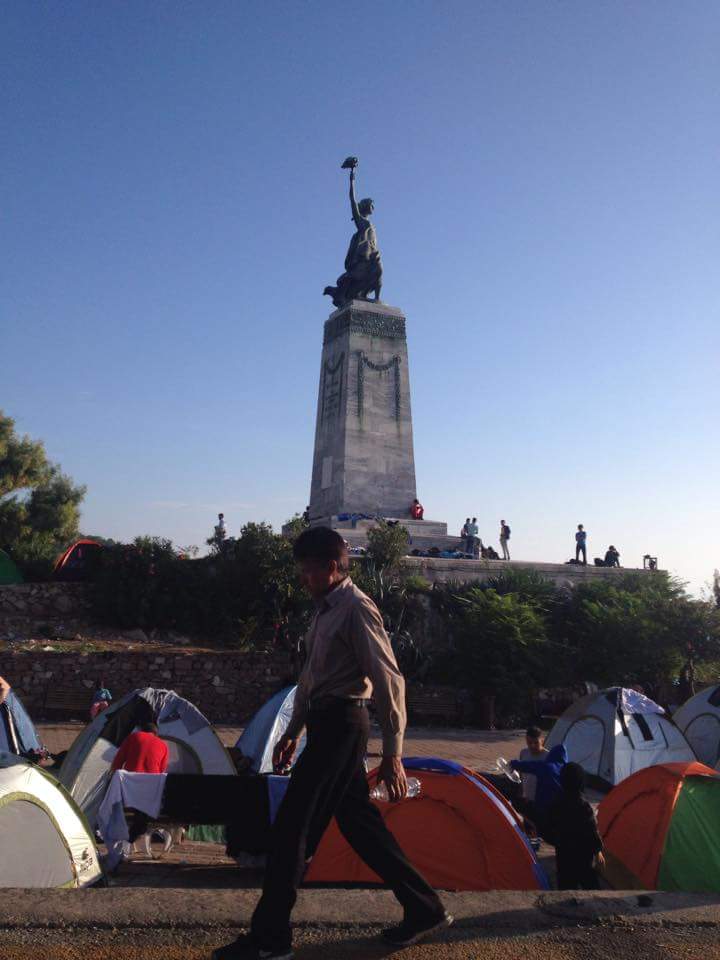
A student shares his experience among the people of Greece
By JOHN TRUPIN
OVERLOOKING THE PORT of Mytilene, the main port of the Greek island of Lesbos, visitors from the U.S.A. will be greeted by a familiar looking face. Built in 1930, there is a bronze statue that is both architecturally and chronologically the younger sister of the larger Statue of Liberty in the United States. In both places, the statues represent an idealized, somewhat misleading version of their homelands: open, free, and providing the opportunity for a better life for those who come willing to work.
Nowhere, of course, has it ever been that simple.
On the island of Lesbos, only 23 miles from the coast of Turkey, immigrants have been omnipresent since the beginning of the 20th century. In 2015, the stream became a flood, swelled by refugees fleeing civil war in Syria. Before coming to Greece, I assumed the refugees were viewed similarly here as illegal immigrants are often viewed in America. Seeing Greeks who are struggling themselves consistently give their time, food, clothing, etc. to people who they perceive to need it more has opened my eyes.
We spent nights with our Greek hosts making sandwiches and collecting toys, not as a job, but because it is the right thing to do and it is what we are able to give. Sometimes this is distributing food and water, speaking with the refugees or playing games with the children (Duck, Duck, Goose is a worldwide phenomenon).
In Greece, historically, a person earns the respect of others in how they use their own wealth and means (no matter how much or how little it may be) to assist those who have less than they do. Helping those in need, in a way that is modest and effective, is an essential characteristic of a person who is to be respected.
Even with a economic crisis weighing heavily on the minds of every Greek I have met, the kindness that most Greeks show for the thousands of immigrants in their midst is inspiring. Small Non-Government Organizations (NGO’s) work to help immigrants find food, shelter, and new destinations. According to the Greeks we have met, it is the responsibility of each individual on Lesbos to help.
Every time our group of 15 Americans has gone to try and contribute, we have been amazed by both the resiliency of the people who have made the dangerous journey in search of liberty and safety and the individualism of the Greeks who want to help. It is my hope that this spirit will return with us, because if these people who have struggled so mightily the past five years can still give, we can do much more at home.
Subscribe to the Mossy Log Newsletter
Stay up to date with the goings-on at Lewis & Clark! Get the top stories or your favorite section delivered to your inbox whenever we release a new issue.

Leave a Reply